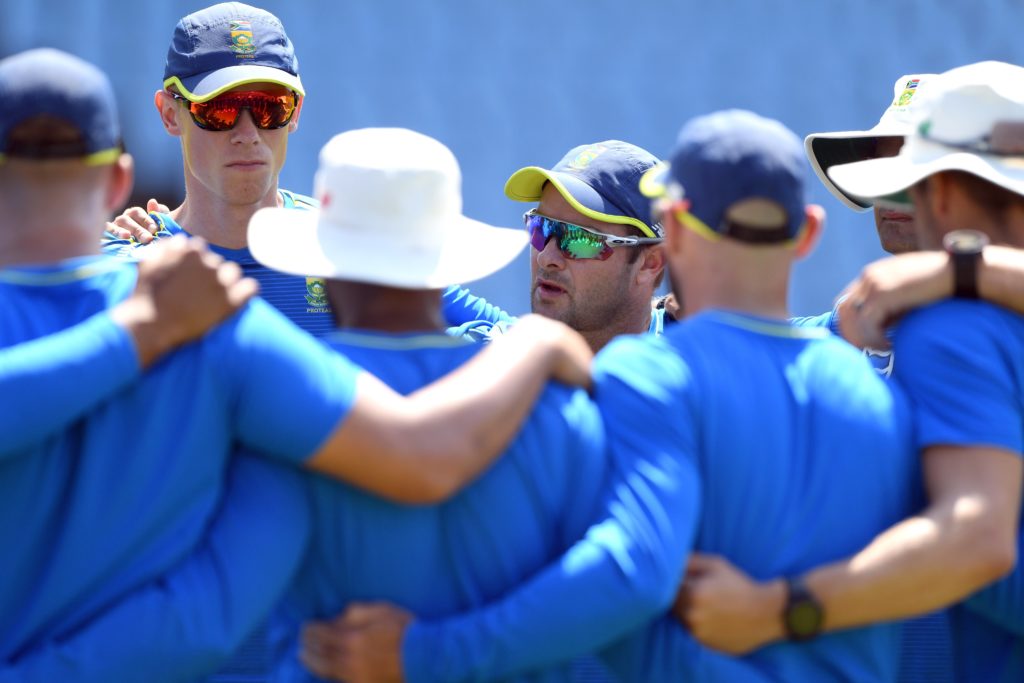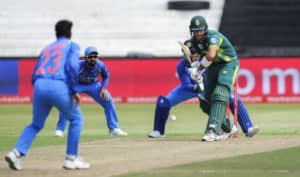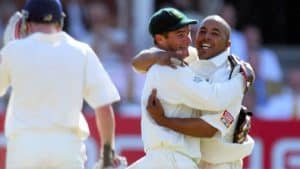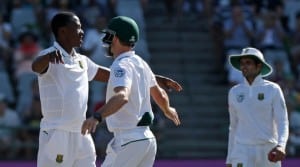Great coaches are able to find solutions to their team’s most difficult challenges in relatively short periods of time. Mark Boucher’s capacity to do so is now in question, writes RYAN VREDE.
This season was a defining one for Boucher, and he is being defined as a coach struggling to find answers to the team’s most pressing questions.
The Proteas slumped to another defeat on Saturday afternoon, leaving them on the verge of losing their fourth series on the bounce (across all formats) and Boucher’s seventh of 11 (one tied) since taking charge in late 2019. Nine of those 11 series have been played on home soil.
Yet, Boucher continues to enjoy relative immunity from criticism from most of the South African cricket media and in large sections of the public. It is truly perplexing, given that most of Boucher’s predecessors have been publicly ripped apart for far less and in earlier stages of their careers.
It appears that there is a disregard for, or lack of understanding of, the positive impact a great coach can have. This becomes even more important at a game’s elite level.
Great coaches have the ability to (among other qualities) get widespread investment in their vision, quickly assess the technical and mental competency of the players at his disposal and determine who to build with and which personnel he needs to cull and add, help players move closer to the ceiling of their potential (irrespective of the talent base they start from), create a culture that promotes consistent success, and identify and eliminate barriers to consistent success.
There are countless examples of coaches who take teams widely regarded as lacking enough world-class talent to be consistently successful, to the summit of their code. Indeed, one such example is right on Boucher’s doorstep – Rassie Erasmus.
In 2018, the former Springbok head coach took the reins of a team who had been woefully inconsistent in the preceding four years, and populated by a collection of players who most considered to be good players, rather than great ones. In four years he completely transformed Springbok rugby, having exhibited high degrees of competency across all key dimensions of leadership.
Results were mixed in the infancy of his tenure, but he was always clear about his plan and never veered from its roll-out. He clearly communicated the details of that plan to the media, rather than speaking about playing philosophies or intangibles, as Boucher has be guilty of at points in his tenure.
If Boucher has a plan, it is, at best, not being communicated well; at worst, entirely inadequate in its substance and execution.
Boucher has been offered a massive vote of confidence in the form of a four-year contract, unprecedented for a Proteas head coach. It is safe to assume that, given the contract’s length, the Cricket South Africa board accepts that there will be a rebuilding phase before the team starts to win consistently. It remains to be seen how long their faith endures, especially if Boucher’s teams continue to lurch from one mediocre performance to another.
He is into his second season as coach of and 18 matches across all formats into his tenure. There are painfully few signs that he has the capacity to build the Proteas into an elite nation across all formats of the game, which should be the base expectation for any Proteas head coach, such is the talent at his disposal.
Those signs may emerge in the latter part of year two or early in year three, and results may become more consistent in year four. That, however, is a generous timeline for any elite coach in any code.
What can’t continue is the relative immunity Boucher enjoys from criticism at the expense of his players, the weakness of the domestic structure, the turmoil at CSA or the fact that he is coaching at a heavily disrupted period in the game’s history (all coaches are). The excuses must stop and Boucher must be held to the same high standards his predecessors were.
Is Boucher a failure? No, it is too early to make an absolute judgement on this. Is he failing? Undoubtedly.
Great coaches are able find solutions to their team’s most difficult challenges, and do so in a relatively short time. The next couple of months will expose Boucher as either a great coach or just a good one.





